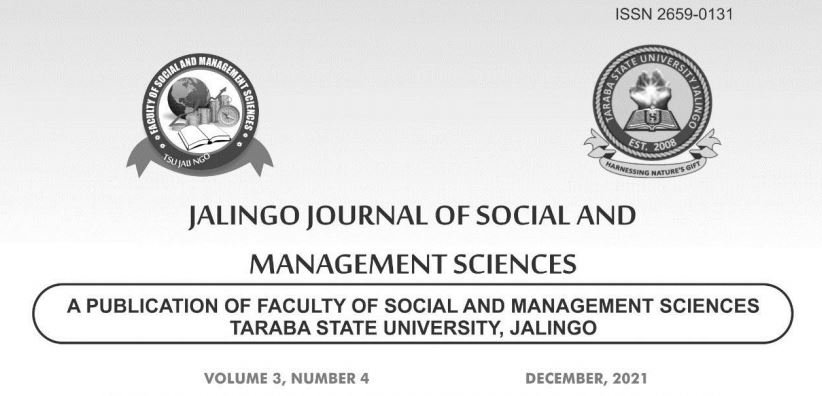Empirical Analysis of Poverty and Human Capital Development in Nigeria
Keywords:
Co-integration, Development, Human capital, OLS, Policy, PovertyAbstract
This study quantitatively measures the impact of poverty on human capital development and further examines the extent to which poverty undermines human capital development in Nigeria. Also, the study undertakes empirical reviews of relevant literature on the impact of poverty on human capital development, showing gaps identified from the reviews. While majority of the studies reviewed found a positive unidirectional link between human capital development and poverty level, only few studies invert that logic. The Augmented DickeyFuller test was used to investigate the existence of unit roots in the data and the Ordinary Least Square (OLS) technique was employed. However, since all the variables were stationary at first difference. The study also applied the Johansen co-integration technique to establish a long-run relationship among the variables. The results showed that GNI per capita and Life expectancy are positively related to per capita income (PCI), that is to say, an increase in GNI per capita or Life Expectancy will lead to an increase in the per capita income of the citizens, while School Enrolment showed a negative relationship with PCI. However, the suggestions that government should invest more in schools and health institutions to improve human capital development are simplistic in that they assume that government has limitless resources. Accordingly, the study recommends among others that policymakers should not just focus on the overall amount of government spending on human capital development but examine all investment inputs including the competencies of those implementing policy and managing resources.

Downloads
Published
Issue
Section
License
Copyright (c) 2023 JALINGO JOURNAL OF SOCIAL AND MANAGEMENT SCIENCES

This work is licensed under a Creative Commons Attribution-NonCommercial 4.0 International License.
